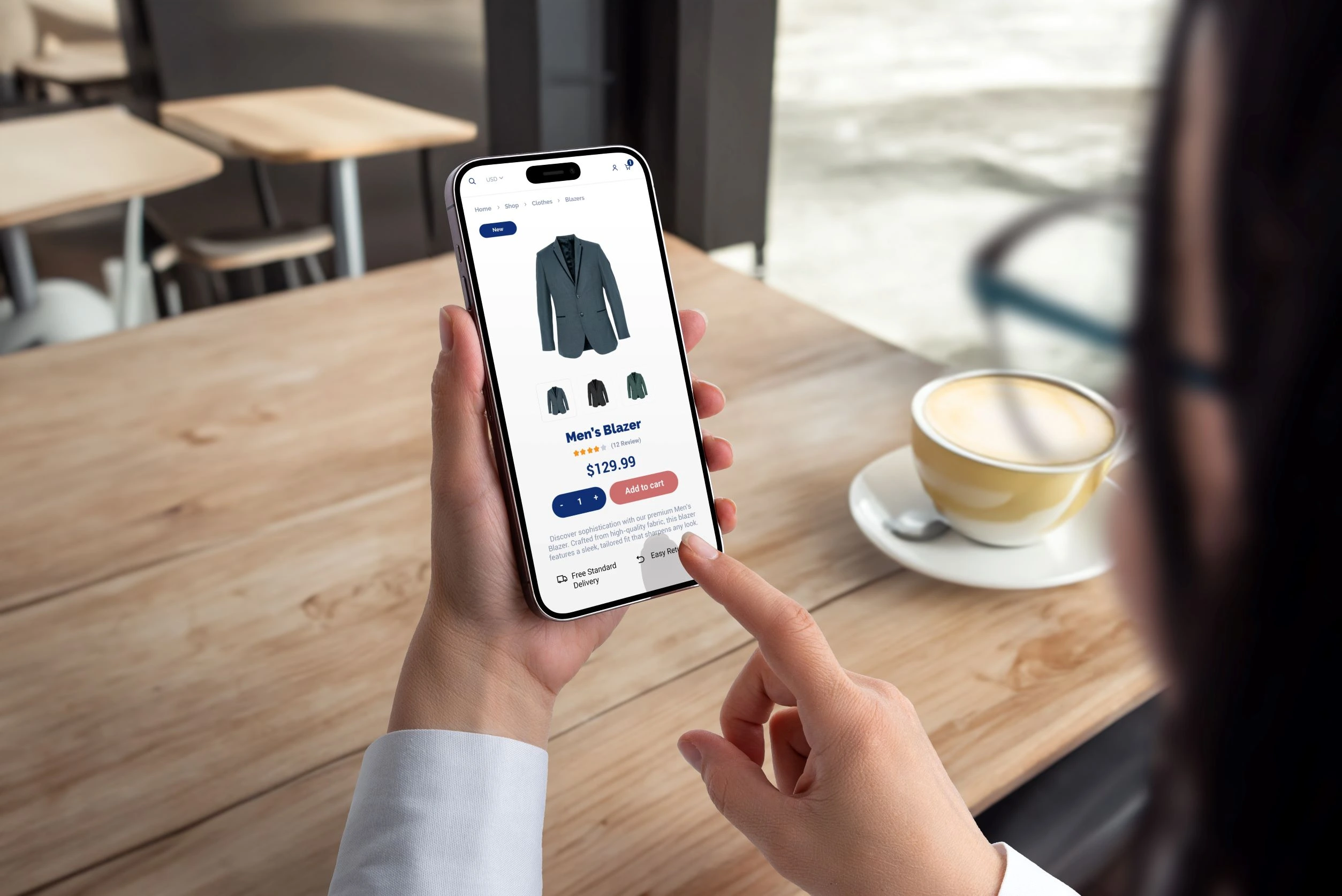Today, mobile devices such as smartphones and tablets are becoming increasingly integral to our lives. This transformation has fundamentally changed our shopping habits. Mobile commerce, or m-commerce for short, is a type of e-commerce conducted entirely through mobile devices, enabling individuals to purchase products or services. With user-friendly apps, convenient payment methods, and instant accessibility, mobile commerce offers new opportunities for businesses while making shopping more practical than ever for consumers.
Currently, mobile commerce is one of the fastest-growing segments of digital shopping, making it easier for businesses to reach their customers. In this article, we will explore what mobile commerce is, its advantages, its importance for businesses, and strategies for success.
Mobile Commerce in Turkey
According to the 2023 “E-Commerce Overview in Turkey” report by the Ministry of Trade, purchases made via mobile applications significantly outperform other channels in terms of transaction volume and number.
The distribution of transaction volume by order channels is as follows;
- Mobil web : 6.14%
- Web : 13.85%
- Mobile Application : 80.01%
- The distribution of transaction numbers by order channels is as follows;
- Mobil web : 3.21%
- Web : 5.83%
- Mobile Application: 90.96%
Definition of Mobile Commerce and Its Differences from E-Commerce
Mobile commerce refers to conducting digital transactions through mobile devices. As a subset of e-commerce, this method enables users to shop without location or time constraints.
Differences Between Mobile Commerce and E-Commerce
Mobile commerce offers a more flexible, faster, and user-centric shopping experience compared to e-commerce. Here are some key differences:
- Mobile commerce encompasses transactions conducted exclusively through mobile devices.
- The user experience in mobile commerce is more personalized (e.g., notifications and location-based campaigns).
- While e-commerce relies on traditional payment methods like credit cards, bank transfers, or third-party payment platforms, mobile commerce offers more innovative payment solutions, such as mobile wallets (Google Pay, Apple Pay), QR code payments, SMS-based payments, and even biometric authentication (fingerprint or facial recognition).
- Marketing strategies in e-commerce typically focus on email marketing, SEO, and social media advertising, whereas mobile commerce prioritizes mobile ads, in-app advertisements, location-based promotions, and push notifications.
- In e-commerce, social media platforms may provide links that usually redirect to websites, whereas mobile commerce integrates directly with social media applications. Users can click on products via Instagram or TikTok and make purchases directly.
- Completing purchases on e-commerce platforms via desktop or laptop devices can take longer. In contrast, mobile commerce is faster and more convenient, leading to higher conversion rates.
- Security in e-commerce typically relies on standard SSL certificates and encryption methods, while mobile commerce adds additional layers of protection, such as biometric authentication, two-factor authentication, and the security features provided by mobile payment platforms.
What Are the Advantages of Mobile Commerce??
It provides convenience and speed. Since mobile devices are always with us, users can shop anytime they want. This makes the shopping process faster and easier.
It reaches a broad user base. The increasing use of mobile devices worldwide offers businesses the opportunity to reach more potential customers.
It offers a personalized shopping experience. Mobile commerce analyzes users’ shopping habits and suggests tailored campaigns.
In mobile commerce, which features advanced payment methods, users can pay using various options such as credit cards, mobile wallets, or fast payment applications.
What Are the Benefits of Mobile Commerce for Businesses?
Mobile commerce provides businesses with the opportunity to reach a broader audience in the digital world, increase sales, and maximize customer satisfaction. With advancing mobile technologies, it has become possible to deliver faster services to customers and gain a competitive edge. The key benefits of mobile commerce for businesses include:
Increased Customer Loyalty: User-friendly applications and personalized experiences enhance customers’ attachment to the brand.
Boosted Sales: Mobile commerce enables businesses to extend their sales across all hours of the day and offer customers instant opportunities.
Better Strategies with Data Analytics: Mobile commerce applications analyze customer habits in detail, helping businesses make strategic decisions.
What Are the Types of Mobile Commerce?
You can provide your users with a mobile commerce experience through either a mobile application or a mobile website.
- Commerce Through Mobile Applications: Mobile applications designed specifically for e-commerce businesses make the shopping experience faster and more practical.
2. Commerce Through Mobile Websites: Mobile-optimized websites are a key alternative for users who prefer not to download an app.
What Are Mobile Payment Systems?
Apple Pay, Google Pay, and other mobile payment tools are essential components of mobile commerce. By integrating these payment systems into your mobile commerce platform, you can offer your customers a variety of payment options.
Key Considerations for Mobile Commerce
To provide your customers with an excellent mobile commerce experience, pay attention to the following points:
1.User-Friendly Design
A design optimized for mobile devices, offering fast and easy navigation, directly impacts the user experience.
2.Secure Payment Methods
Ensuring the security of payment systems is essential to gaining customer trust.
3.SEO and Mobile Optimization
Searches performed on mobile devices constitute a significant portion of total internet traffic. Therefore, mobile commerce platforms should be SEO-friendly and fast.
Tips for Success in Mobile Commerce
Achieving success in mobile commerce depends on understanding user needs and providing a seamless shopping experience. With the right strategies and innovative approaches, your brand can stand out in the mobile world. Here are some effective tips to help you excel in mobile commerce:
- Use Push Notifications Effectively
Sending regular notifications to customers about campaigns and discounts increases engagement rates.
- Offer Loyalty Programs
Provide special rewards and discounts to customers through your mobile app to boost loyalty.
- Integrate Social Media
Connect your mobile commerce platform with social media channels to drive more customer traffic.
Mobile commerce is expected to grow even further in the coming years. The integration of technologies like artificial intelligence and augmented reality will offer customers a more interactive shopping experience. At the same time, advancements in mobile payment solutions will reduce transaction times and enhance user satisfaction.
Mobile commerce is no longer an option but a necessity for businesses today. To provide your customers with a better shopping experience and gain an edge over your competitors, you should leverage the advantages of mobile commerce. Understanding and implementing the dynamics of mobile commerce correctly will determine your brand’s success in the digital world. At fiCommerce, we provide end-to-end e-commerce services for businesses.
For the brands we serve with e-commerce logistics, we design and develop user-focused, error-free websites and mobile applications on the world’s most popular e-commerce platforms, tailored to their needs. Whether you prefer a quick solution with ready-made templates or a fully customized design, we create platforms suited for Turkish and/or international markets. Contact us to grow your business with mobile commerce!





